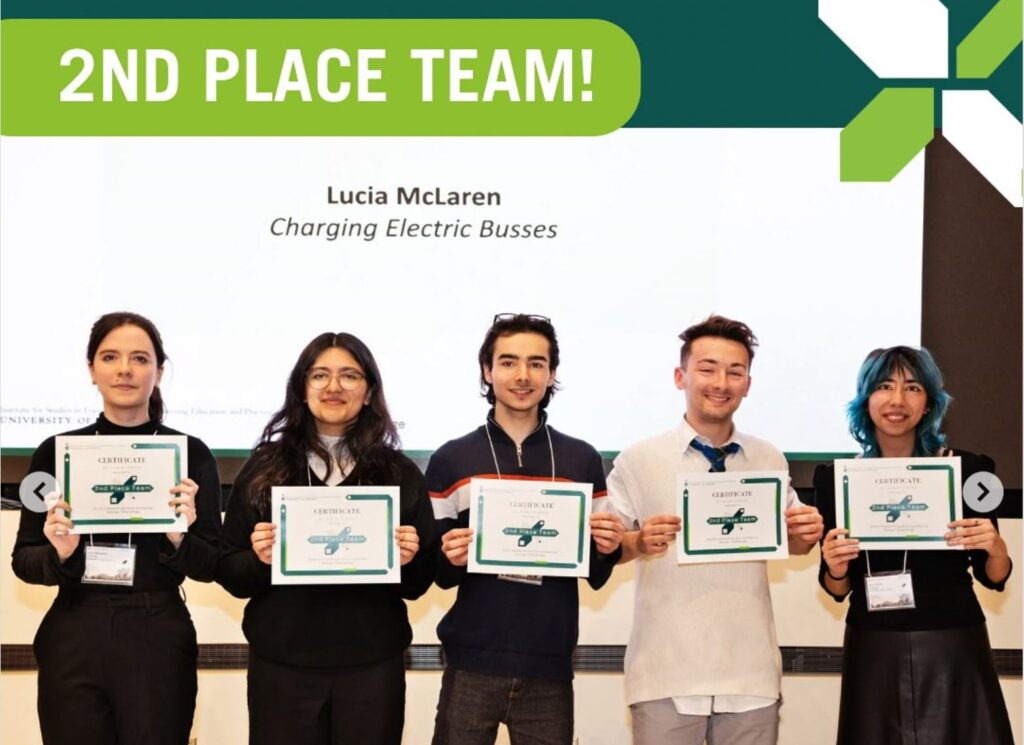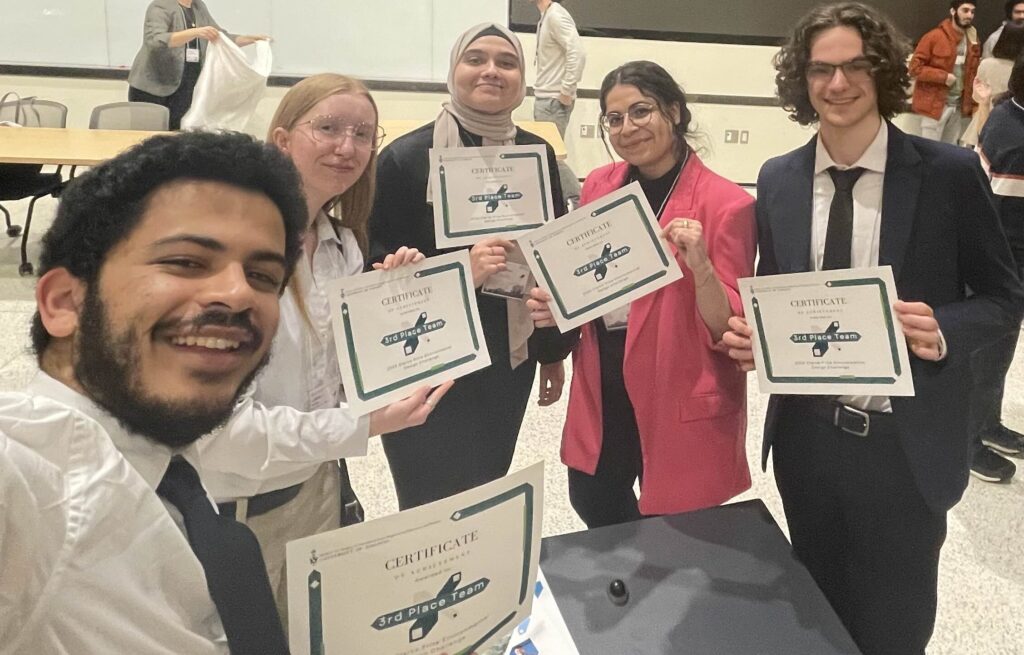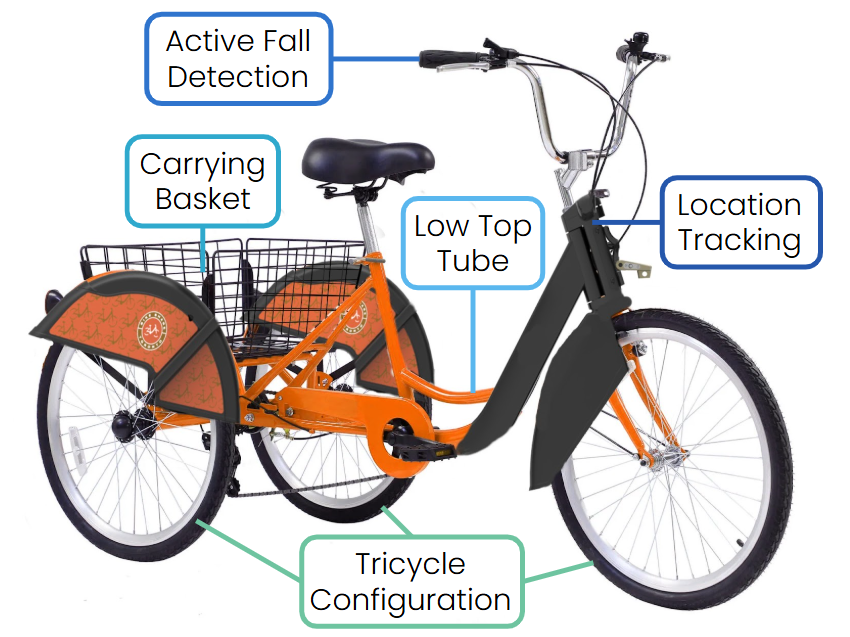
EngSci students led two of the prize-winning teams of this year’s Clarke Prize Environmental Design Challenge. This annual two-day competition for undergraduate students was held on January 25 and 26 and asks students to use their engineering skills to tackle environmental challenges in collaboration with peers and industry experts.
Teams were awarded $10,000 for first place, $7,000 for second place, and $5,000 for third place.
The winning groups presented solutions to challenges in sustainable transportation.
2nd place: Charging Electric Buses: A Sustainable Future for All
Lucia McLaren, Bhumika Verma, Anthony Casey, Adam Kabbara (all Year 2 EngSci), and Ada Selcek (Year 2 ECE)
Students designed a wireless charging system for installation at bus stops that would let Toronto’s electric buses recharge while picking up passengers. The team’s goal was to increase the city’s capacity for supporting electric buses, reduce their impact on the power grid, and improve the reliability of electric buses for many bus routes. This would improve the adoption of electric vehicles in the city and make sustainable transportation more accessible.

3rd place: A Bike-Friendly Toronto
Nour Barsoum (EngSci PEY), Rana Abdelrahman (EngSci Year 4), Abdullah Fawzy (EngSci PEY), Liz Michez (EngSci Year 4), and Jeremy Bryce (EngSci Year 4)
Biking empowers seniors by giving them independence and health while making Toronto more equitable and sustainable. The team’s senior-friendly bike-share solution provides a safe and accessible way for seniors to stay active and connected to their community through three wheeled bikes designed for those with mobility restrictions. These bikes can stand alone and come equipped with a basket for utility alongside an accelerometer and gyroscope in the handlebar, which can detect any potential falls and alert a registered contact through an option enabled in the app, helping users feel a sense of companionship and safety while riding around. With the population of seniors in Toronto on the rise to up to 21% in 2041 the team hopes this solution can help them live more mobile, independent, healthy, and fulfilled lives benefiting themselves and their communities.
